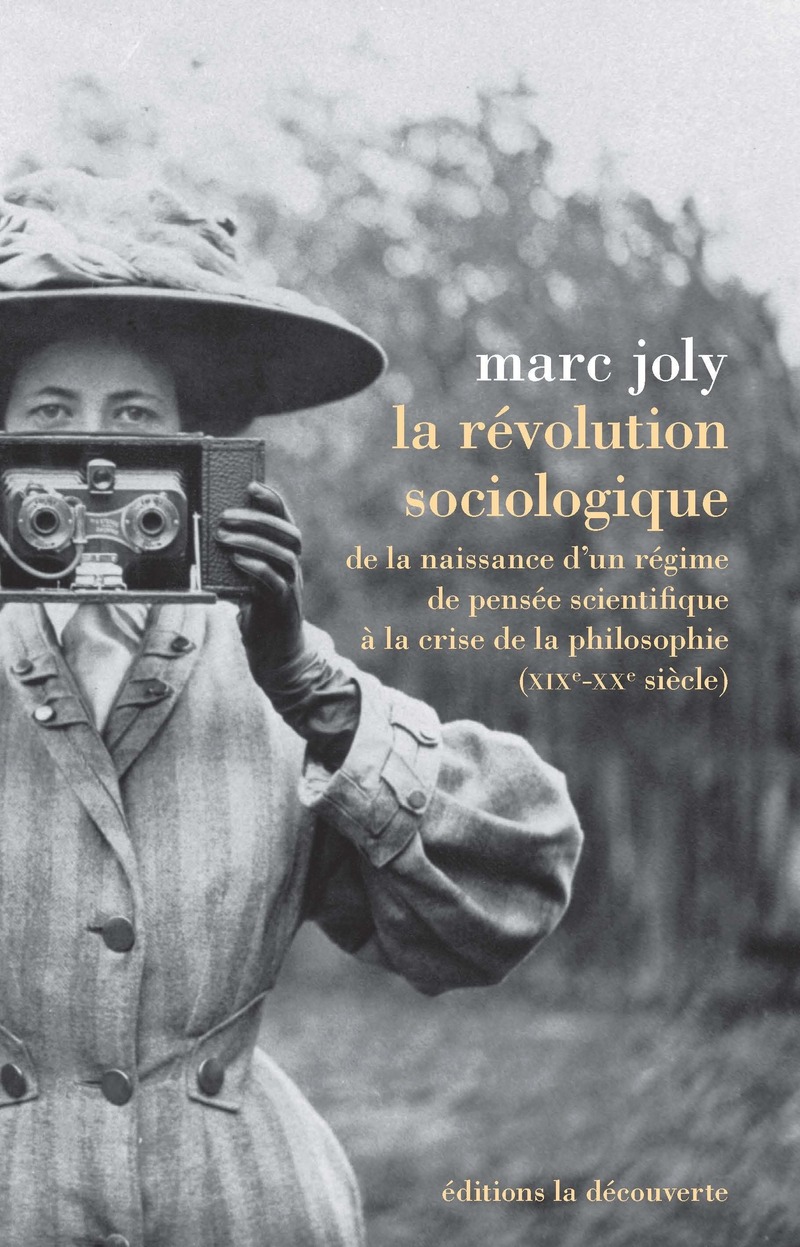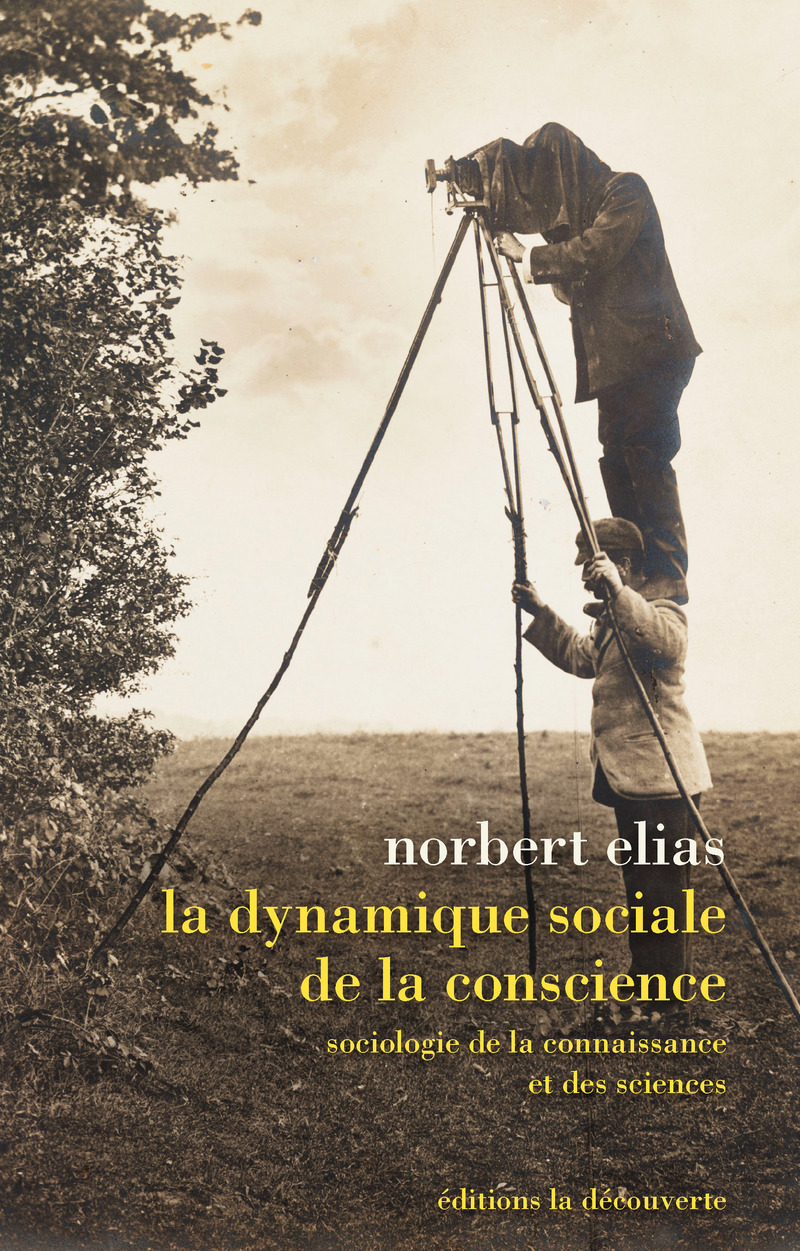La révolution sociologique
De la naissance d'un régime de pensée scientifique à la crise de la philosophie (XIXe-XXe siècles)
Marc Joly
Au tournant du XIXe et du XXe siècle, l'ordre de la pensée, du savoir et des représentations a été ébranlé par la sociologie naissante. L'image de l'" homme ", de l'existence humaine, s'en est trouvée profondément bouleversée. Cette révolution sans morts ni barricades a en revanche fait de nombreuses victimes, à commencer par la philosophie. Face à l'idée d'une autonomie et d'une singularité irréductible des faits sociaux, parachevant le développement d'approches objectivistes de l'esprit humain, la philosophie s'est retrouvée acculée, sommée de se redéfinir et d'abandonner à la sociologie, au moins provisoirement, les terrains de la morale et des conditions de possibilité de la connaissance.
Avec Max Weber, Georg Simmel et Ferdinand Tönnies en Allemagne, Émile Durkheim et surtout Gabriel Tarde en France, la sociologie consacra, tout d'abord, le principe d'une pluralité de déterminations historiques et objectives pesant sur l'existence humaine. Elle ratifia, ensuite, l'avènement d'une conception nouvelle de la construction théorique, respectueuse de la complexité et de la force contraignante des faits ainsi que de la nature " sociale " des catégories de pensée et des pratiques de production et de transmission des connaissances.
Une grande partie de la philosophie du XXe siècle peut être lue comme une réponse à cette révolution cognitive. C'est ainsi que Henri Bergson, Georges Canguilhem, Martin Heidegger, William James, Karl Jaspers, Maurice Merleau-Ponty ou encore Bertrand Russell sont soumis, ici, à une grille d'analyse inédite.
Un ouvrage aussi documenté qu'audacieux, qui offre la première histoire croisée de la sociologie et de la philosophie.

Nb de pages : 583
Dimensions : * cm
ISBN numérique : 9782707194817
 Marc Joly
Marc Joly


Extraits presse 

2017-02-02 - Arnaud Saint-Martin - L'Humanité
Table des matières 

Introduction
I / La tentation française de la psychologie sociale
1. Pourquoi Tarde ?
Une trajectoire hors norme
Un règne bref
Une figure de transition
Le successeur de Taine ?
Ambivalences et échec de la " tentative psycho-sociologique "
Post-scriptum : Quelle " épistémologie " tardienne ?
2. Pourquoi l'imitation ?
Imitation et invention
Deux conceptions de l'interdépendance
Une voie rassurante
3. Du protestantisme en sociologie
" Je marche dans le sillon que vous avez creusé "...
Du positivisme au criticisme
Accéder à l'enseignement supérieur
Protestantisme
vs catholicisme
Contre l'" aristocratisme " tardien
La philosophie au service de " l'âme "
Contre le durkheimisme
4. Être ou ne plus être philosophe
Deux modèles intimidants, deux désirs en lutte
Juger et définir la sociologie
Au-delà de Tarde
Une position isolée
Le lourd fardeau de la science
5. Un " agent de liaison "
" La sociologie par la psychologie "
Réhabiliter le spiritualisme
En quête de " l'homme total "
Une voie sans issue
II / Une exception allemande ?
6. Fonder la " sociologie "
Naissance d'une société savante
Une conférence mondaine
Les sources d'un conflit
Max Weber et la sociologie
Un philosophe ?
Une entente impossible
Paradoxes de la pensée tönniesienne
L'avenir de la sociologie
Post-scriptum
:
Quel " gâchis " ?
7. Échapper à la " sociologie "
Apparence et réalité du néokantisme
Sociologie et théorie de la connaissance
Une erreur de jeunesse
Sortir de l'ambivalence
8. Vers une théorie sociologique des interdépendances
Au-delà du dualisme
Une nouvelle image de l'humanité
Pertinence et innovation
Avec Marx et Freud
Dépasser Simmel
Consentir (ou pas) à un régime contraignant
Post-scriptum :
Une langue abstraite ?
III / Naissance d'un régime conceptuel scientifique et crise du référentiel philosophique
9. Dans l'étau d'une langue scientifique
Une langue structurante
Un régime encerclant
Des cultures scientifiques de masse ?
À la conquête de l'inconnu
Post-scriptum : Sur Stephen Jay Gould, les sciences, la religion, la philosophie et le " social-historique "
10. À la recherche du déterminisme historique
Nécessité d'une épistémologie différentielle
Une nouvelle contrainte du pensable
" Heureusement que je ne suis pas philosophe de profession "
Une synthèse impossible ?
Post-scriptum : Paul Lacombe : un historien dans l'orbite du régime conceptuel des sciences humaines et sociales
11. Un régime, des sanctions
Une deuxième "
Sattelzeit "
Rappel à l'ordre du discours
Sanctions d'un coup de force
12. Psychologie sociale et crise du référentiel philosophique
La sociologie plutôt que la psychologie sociale
Retour sur
Les Lois de l'imitation
Tarde selon ses correspondants
La métaphysique et la morale comme programme de restauration
Quelle(s) victoires ?
13. La crise sociologique de la pensée philosophique
" Prendre congés de Dilthey "
La " philosophie sociale " au-dessus de tout
Surmonter la crise de l'idéalisme
Sociogenèse du kantisme
Pragmatisme et rationalisme
" L'Être ", le sujet, ou le néant philosophique
"
Hubris de la pensée sans limites "
Apories de l'ambition philosophique
14. Kant ou Darwin ?
Une configuration spiritualiste
Comment arraisonner la sociologie ?
Dilemme philosophique
Mirage de la philosophie scientifique
Le juste milieu comme philosophie – ou la philosophie comme juste milieu ?
Post-scriptum : Georges Canguilhem : une " idée de l'homme " cartésiano-kantienne contre le régime conceptuel des sciences humaines et sociales
Conclusion
Remerciements
Sources
Bibliographie
Index des noms de personnes
Index thématique.














